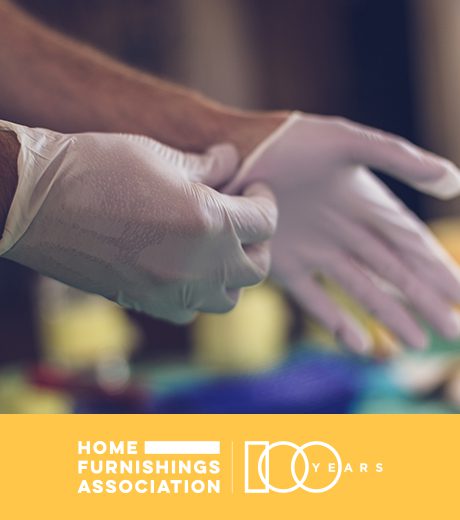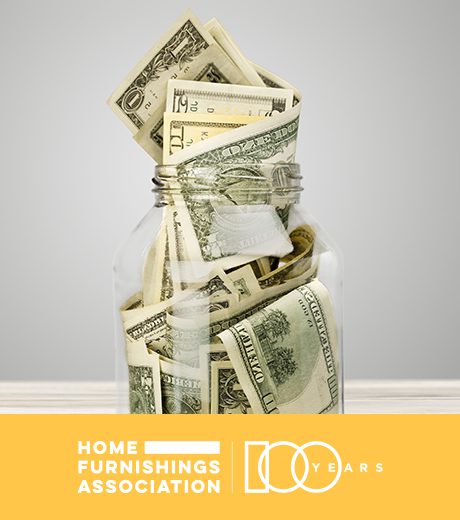HFA executive vice president Mark Schumacher spoke with HR experts Erick Becker of Cummins & White, LLP, and Eric Martin of ACG Consulting Services, Inc. on March 27 about pressing HR-related concerns HFA members are facing during the coronavirus pandemic. Retailers were invited to ask questions related to their businesses. Here are the questions and Becker and Martin’s responses. (Note: responses might be edited for clarity and brevity):
Q: Would an infected employee qualify for a worker’s comp claim if they think they were infected at my store?
EB: In most circumstances, when you suffer an injury or illness while you are engaged at work that is a work-related illness and you are eligible for worker’s comp.
Q: What do I do with an employee who self-reports that they came into contact with someone from COVID-19?
EB: First, as an owner, I’m not going to want them to come to work. But to answer the question it’s not the employer’s duty to call (Health and Human Services). That would be up to the health provider who provided the diagnosis.
Q: I had to furlough my staff. I also applied for an emergency disaster loan. I’m hearing there’s a requirement I pay 14 days of sick pay as we are living in a shelter-in-place state. Is that true?
EB: I am not aware of any requirement for emergency loans that are available that you have to pay 14 days of sick pay. That may be something referring to the Families First Act.
EM: I agree. There are some strings attached to (Small Business Loans) but those pertain to keeping staff on and limiting any reduction of pay.
Q: Can employees refuse to come to work out of fear of being infected by others?
EM: Absolutely. This is the question that’s really been trending lately for me. I take 10 calls a day from employers asking this question. If that’s (the employees’) position, my guidance to employers again is “That’s OK. We’re not forcing you to come to work in these times. You can use paid sick leave, vacation if available, PTO, personal leave or I’ll assign you to work remotely and give you the tools.” By the way, telecommuting is not an entitlement whether in coronavirus times or other times. If you do have people working from home, my recommendation is to put some borders on that, check-in with them, and remond them it’s a temporary arrangement. Also, don’t forget home offices. The people you have working from home, they have expenses. Most likely the biggest will be a fraction of cell phone costs, possibly toner for their printer. Just be aware of that.
EB: But if an employer decides it can not pay or afford you being out, they’re within their right to say, “I’m sorry I can’t pay out right now. You’re welcome to take unpaid leave.” Now, in certain jurisdictions like California, Washington, and some other states, there is a paid sick leave law that would entitle employees to take sick leave. Whether that’s a separate sick leave allotment or part of PTO or employees need… if you don’t have the money then you can tell the employee, “Look, we’re going to accommodate you. But if you don’t or can’t telework, it’s going to be unpaid leave.
Q: How much can I ask employees about their health?
EB: You’ve got a couple of things going on. You got HIPPA and how to protect the information you get from your employees to consider. Then there are ADA questions that come into play asking. Asking about a specific diagnosis is generally frowned upon. If you’re asking asking in general terms — are you experiencing symptoms related to COVID like a fever or if you’re taking temperatures, that’s fine. Under the current guidelines, the answer is yes to protect your other employees. But I would be nervous about asking employees directly, “Have you been diagnosed with COVID?” That’s where a possibility of a disability, a discrimination claim can come down the road if some adverse action is taken against the employee.
EM: I have a lot of employees sharing with me they are taking temperatures. They are trained to respect HIPPA privacy, health privacy laws. My suggestion to retailers is to have a game plan going in.
Q: Wouldn’t retailers need to know the results of the test so we know whether to protect other employees?
EB: If an employee says “I’m being tested,” I would not make it a requirement that that employees reveal their test results to you. Maybe you could say, “Hey, we’d appreciate it if you let us know what the results are so we can take appropriate action.” Most of the time employees come back and share or good news or tell you, “Wow, I’m positive. I’m quarantined. If we, as employers, make a softer request, that’s permissible.











